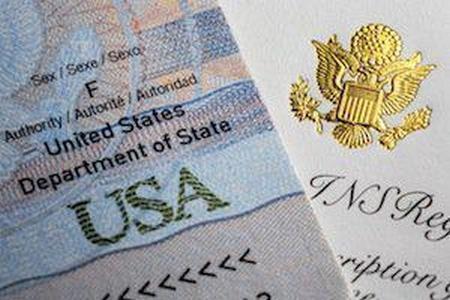Employer Sponsored Immigration: A Guide to EB Visas
 Sometimes an employer, especially in a highly specialized industry, needs to bring in a worker from outside the United States. One might think the worker would need to apply for a work visa on their own, but this is not the case. There is a specific type of visa that allows employers to sponsor skilled foreign nationals to come to the United States and work for them. Employer sponsored visas are becoming more and more common.
Sometimes an employer, especially in a highly specialized industry, needs to bring in a worker from outside the United States. One might think the worker would need to apply for a work visa on their own, but this is not the case. There is a specific type of visa that allows employers to sponsor skilled foreign nationals to come to the United States and work for them. Employer sponsored visas are becoming more and more common.
About 140,000 visas are available each year for skilled workers that can get sponsorship from employers. Once an employer gets a labor certification for that worker, they must file an I-140, a Petition for Alien Worker. This must be done in the appropriate employment category, of which there are five. The categories are:
- EB-1, or First Preference category. There are three subcategories: persons with extraordinary ability (for example, a Nobel Peace Prize winner or Olympic medalist), outstanding professors and researchers, and multinational managers or executives. Persons of extraordinary ability will file their own I-140s, and do not have to have specific job offers, as long as they are continuing to work within their field of achievement. The other two subcategories do need a job offer, and will have their employers file their I-140s. Specific criteria must be met for a worker to be granted an EB-1.
- EB-2, or Second Preference category. There are two subcategories: professionals holding advanced degrees and persons of exceptional ability. Exceptional ability means ability far above the usual in a specific field.
- EB-3, or Third Preference category. The subcategories in this group are skilled workers (workers whose jobs require at least two years of training), professionals (workers whose jobs require at least a baccalaureate-level degree) and unskilled workers (everyone else).
- EB-4, Certain Special Immigrants. A labor certification is not actually required for many of the people who fall into this category, which is basically a catch-all for a worker with a job offer who does not fit any of the previous sections. Examples of people who are granted visas under this category are employees/former employees of the U.S. government abroad, certain religious workers, and immigrants from states like Iraq and Afghanistan who aided the U.S. forces and encountered threats because of their aid.
- EB-5, Fifth Preference, or the Immigrant Investors category. Immigrants who want to start a business that would create jobs in the U.S. are eligible for this kind of visa. There are capital amounts that must be met, and specific numbers of jobs that must be created in the new business, in order for this visa to be obtainable.
EB visas are approved based on their priority date, in the chronological order that the applications are received. Given that there is a select quota for how many visas of each category are granted per year, it may be years before an application is approved. Depending on the category, family members are able to apply for immigration status as well. Usually the immediate family members of EB-2, -3 and -4 holders are able to obtain status. However, they will be subject to the same quota and waiting periods.
Resources in Illinois
If you have received a job offer or need help understanding EB visas, do not hesitate to contact Mevorah & Giglio Law Offices in DuPage County, Illinois. We can help.
 English,
English,
 Spanish,
Spanish,
 Polish,
Polish,
 Urdu
Urdu













 Make a Payment
Make a Payment



